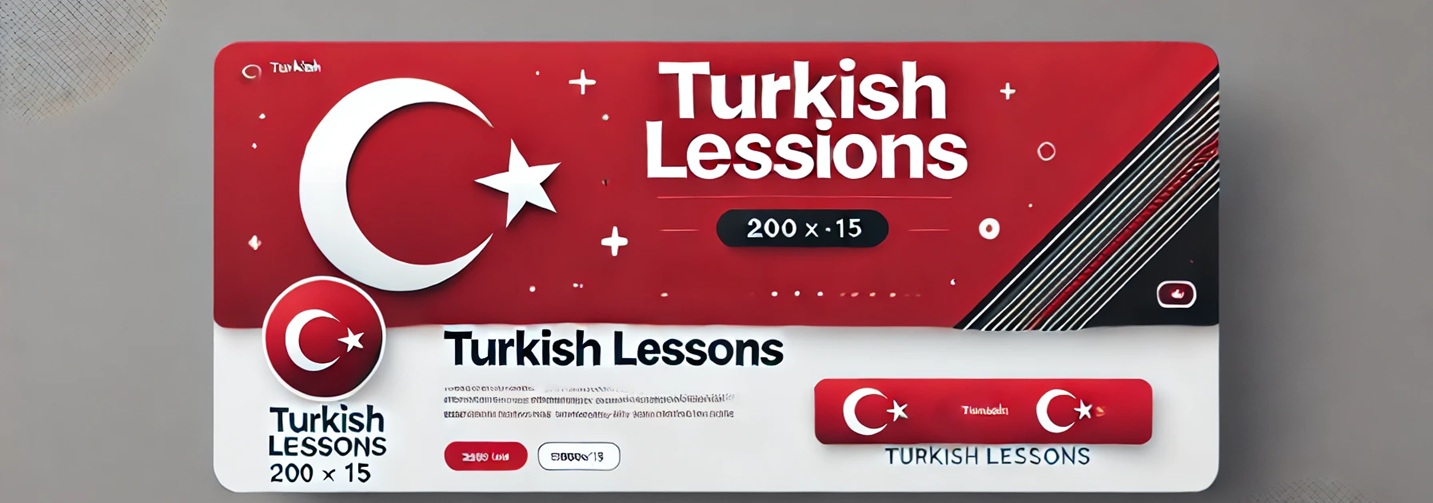Learn Turkish with tv series
Lesson2-TV
Question:
What does “baştan” mean in Turkish phrases like “baştan anlatsana,” and how is it used in sentences?
Short Answer:
“Baştan” means “from the beginning” or “start over.” It’s used to ask someone to repeat or restart something.
5 Example Sentences Table 📌
| Turkish | English |
|---|---|
| Baştan anlat. | Tell it from the beginning. |
| Şarkıyı baştan söyleyelim. | Let’s sing the song from the top. |
| Baştan başlamalıyız. | We need to start over. |
| Projeye baştan başladık. | We restarted the project from scratch. |
| Baştan dinleyince anladım. | I understood when I listened from the start. |
-
“Baştan anlatsana.” (Tell me from the beginning.)
-
“Baştan başlasana.” (Start over.)
-
“Baştan çalışsana.” (Practice from the start.)
💡 Key Idea: “Baştan” = Reset & replay!
Question for student about ”baştan” word
The second grammar rule in the series is the suffixes meli and malı.
Explanation of “-meli/-malı” Suffixes in Turkish (Obligation/Necessity)
Question: How are “-meli/-malı” suffixes used in Turkish, and how do they conjugate by person?
Short Answer in English:
-
“-meli/-malı” = “must/should” (obligation/advice).
-
Conjugation: Same for all persons, only the verb stem changes:
-
Git- (go) → Gitmeli (He/she must go) / Gitmeliyim (I must go).
-
5 Example Sentences Table 📝
| Turkish | English |
|---|---|
| Erken kalkmalısın. | You should wake up early. |
| Ders çalışmalıyız. | We should study. |
| Sağlıklı beslenmeliler. | They should eat healthy. |
| Yabancı dil öğrenmelisin. | You should learn a foreign language. |
| Tasarruf etmeliyim. | I should save money. |
Question for student about ”meli or malı” suffixes
Question:
What does “Okadarını yaparım” mean in Turkish?
Answer:
-
Literal Meaning: “I would do that much” or “I can handle that much.”
-
Nuance:
-
Used to express confidence (“I can manage that part easily”).
-
Sometimes implies reluctance (“That’s all I’m willing to do”).
-
Question:
What does “halledicem” mean in the sentence “Ben burayı halledicem”?
Answer:
-
“Halledicem” is the colloquial/spoken form of “halledeceğim” (future tense of “halletmek”).
-
Meaning: “I’ll handle it”, “I’ll take care of it”, or “I’ll sort it out.”
-
Nuance: Informal, confident, and often used to reassure someone.
5 Example Sentences Table 📝
| Turkish (Colloquial) | Literal English | Natural English Equivalent |
|---|---|---|
| “Bu işi halledicem.” | “I will handle this job.” | “I’ll take care of this.” |
| “Sorunu halledicem.” | “I will solve the problem.” | “I’ll fix the issue.” |
| “Arabayı halledicem.” | “I will handle the car.” | “I’ll deal with the car (issue).” |
| “Sen merak etme, halledicem!” | “Don’t worry, I’ll handle it!” | “Don’t stress, I’ve got this!” |
| “Parayı halledicem.” | “I will handle the money.” | “I’ll sort out the money.” |
Question:
“Bunun gelecekte neyi değiştirceğini kestiremeyiz(We can’t predict what this will change in the future.)” cümlesinde “kestiremeyiz” kelimesi ne anlama geliyor?
English Question:
What does the word “kestiremeyiz” mean in the sentence “Bunun gelecekte neyi değiştirceğini kestiremeyiz(We can’t predict what this will change in the future.)”?
English Answer:
-
“Kestiremeyiz” comes from the verb “kestirmek” (to estimate/predict).
-
Meaning: “We cannot predict”, “We can’t foresee”, or “We can’t estimate.”
-
Nuance: Used when something is uncertain or hard to guess.
Breakdown of the Sentence:
-
Turkish: “Bunun gelecekte neyi değiştirceğini kestiremeyiz.”
-
Literal English: “We cannot predict what this will change in the future.”
-
Natural English: “We can’t foresee how this will change things in the future.”
5 Example Sentences with “kestirmek” 📝
| Turkish | English |
|---|---|
| Havanın yarın nasıl olacağını kestiremiyorum. | “I can’t predict how the weather will be tomorrow.” |
| Ekibin tepkisini kestiremedik. | “We couldn’t anticipate the team’s reaction.” |
| Fiyatları kestirmek zor. | “It’s hard to estimate the prices.” |
| Ne yapacağını kestiremezsin. | “You can’t guess what he’ll do.” |
| Sonucu kestirmek imkânsız. | “Predicting the outcome is impossible.” |
💡 Key Notes:
-
“Kestirmek” ≈ predict/estimate (often for uncertain or complex situations).
-
Negative form (“kestirememek”) emphasizes inability to guess.
-
Common in hypothetical discussions (future, reactions, outcomes).
Türkçe Soru:
“Bunun gelecekte neyi değiştirceğini kestiremeyiz” cümlesinde “kestiremeyiz” kelimesi ne anlama geliyor?
English Question:
What does the word “kestiremeyiz” mean in the sentence “Bunun gelecekte neyi değiştirceğini kestiremeyiz”?
English Answer:
-
“Kestiremeyiz” comes from the verb “kestirmek” (to estimate/predict).
-
Meaning: “We cannot predict”, “We can’t foresee”, or “We can’t estimate.”
-
Nuance: Used when something is uncertain or hard to guess.
Breakdown of the Sentence:
-
Turkish: “Bunun gelecekte neyi değiştirceğini kestiremeyiz.”
-
Literal English: “We cannot predict what this will change in the future.”
-
Natural English: “We can’t foresee how this will change things in the future.”
5 Example Sentences with “kestirmek” 📝
| Turkish | English |
|---|---|
| Havanın yarın nasıl olacağını kestiremiyorum. | “I can’t predict how the weather will be tomorrow.” |
| Ekibin tepkisini kestiremedik. | “We couldn’t anticipate the team’s reaction.” |
| Fiyatları kestirmek zor. | “It’s hard to estimate the prices.” |
| Ne yapacağını kestiremezsin. | “You can’t guess what he’ll do.” |
| Sonucu kestirmek imkânsız. | “Predicting the outcome is impossible.” |
💡 Key Notes:
-
“Kestirmek” ≈ predict/estimate (often for uncertain or complex situations).
-
Negative form (“kestirememek”) emphasizes inability to guess.
-
Common in hypothetical discussions (future, reactions, outcomes).
🔮 Fun Fact: Like saying “It’s a mystery!” in English when things are unpredictable. 😄
1. “Ceset” Kelimesi
Anlam: Ölü beden, cansız insan veya hayvan vücudu.
English: Corpse, dead body.
Sorular (Öğrenci Cevaplasın):
-
Türkçe: “Ceset gördün mü hiç?”
English: “Have you ever seen a corpse?” -
Türkçe: “Ceset nerede bulunmuş?”
English: “Where was the corpse found?” -
Türkçe: “Ceset bulunca ne yapmalıyız?”
English: “What should we do if we find a dead body?”
2. “Suikast” Kelimesi
Anlam: Siyasi veya önemli bir kişiyi planlı şekilde öldürme.
English: Assassination (planned murder of a prominent person).
Sorular:
-
Türkçe: “Tarihteki ünlü bir suikast örneği söyleyebilir misin?”
English: “Can you name a famous assassination in history?” -
Türkçe: “Suikastlar neden yapılır?”
English: “Why do assassinations happen?” -
Türkçe: “Suikastçılar nasıl yakalanır?”
English: “How are assassins caught?”
3. “İkna Etmek” Kelimesi
Anlam: Birini bir fikre veya eyleme inandırarak yönlendirmek.
English: To persuade, convince.
Sorular:
-
Türkçe: “Birini nasıl ikna edersin?”
English: “How do you persuade someone?” -
Türkçe: “En zor ikna ettiğin kişi kimdi?”
English: “Who was the hardest person you convinced?” -
Türkçe: “İkna için hangi kelimeleri kullanırsın?”
English: “What words do you use to persuade?” -
Türkçe: “Bir reklam insanları nasıl ikna eder?”
English: “How does an ad persuade people?” -
Türkçe: “Aileni tatilde nereye gideceğine ikna ettin mi?”
English: “Did you convince your family about the holiday destination?”
4. “Rol Yapmak” Kelimesi
Anlam: Bir karakteri veya durumu taklit etmek.
English: To role-play, pretend.
Sorular:
-
Türkçe: “Hiç rol yapma oyunu oynadın mı?”
English: “Have you ever played a role-playing game?” -
Türkçe: “Hangi karakteri oynamak isterdin?”
English: “Which character would you like to play?” -
Türkçe: “Rol yapmak neden eğlenceli?”
English: “Why is role-playing fun?” -
Türkçe: “Bir polis rolü yapsan ne söylerdin?”
English: “If you acted as a cop, what would you say?” -
Türkçe: “Rol yaparken hangi duyguları hissedersin?”
English: “What emotions do you feel while role-playing?”
5. “Hayatım Boyunca” Kelimesi
Anlam: Doğumdan ölüme kadar geçen sürede.
English: Throughout my life, my entire life.
Sorular:
-
Türkçe: “Hayatım boyunca unutamayacağım an nedir?”
English: “What’s a moment I’ll never forget in my life?” -
Türkçe: “Hayatın boyunca yapmak istediğin bir şey var mı?”
English: “Is there something you want to do in your lifetime?” -
Türkçe: “Hayatım boyunca öğrendiğim en önemli ders ne?”
English: “What’s the most important lesson I’ve learned in life?” -
Türkçe: “Hayatım boyunca en çok nereyi gezdim?”
English: “Where have I traveled the most in my life?”


